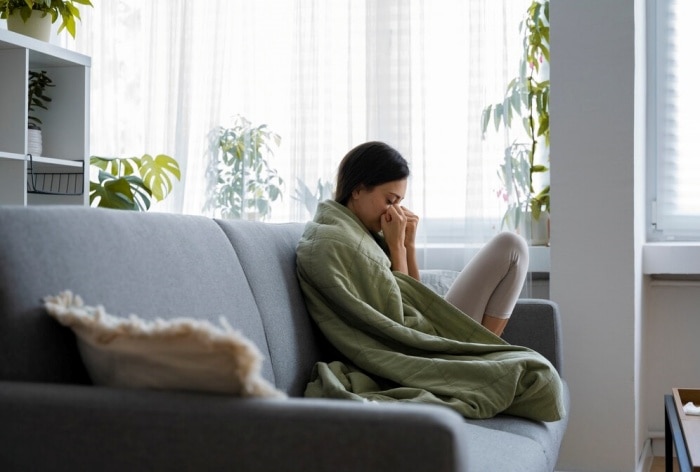Getting anxious or sad when ill is pretty common than one thinks. Read on to know how to manage anxiety and depression during such time.
Falling ill is miserable. No one enjoys being stuck to their bedside, with throat pain, fever etc. It not only makes you weak but the gloomy environment also affects your mental health. This winter has entailed a slew of seasonal illnesses, respiratory problems, viral, flu and new Covid strain. Do you feel anxious, or more depressed when ill? Don’t worry, it is completely normal to feel that way.
These physical stressors also have implications on mental health. It may trigger anxiety levels. When your body is under attack by a pathogen, some of your immune cells recognise the pathogen and take action to eliminate the threat. To succeed, they need to rally other immune cells and several organs of your body.
5 Ways to Cope With Anxiety
- Practice Relaxation Techniques: Engage in relaxation techniques such as deep breathing exercises, progressive muscle relaxation, or guided imagery. These techniques can help calm your mind, reduce anxiety, and promote a sense of relaxation.
- Seek Support: Never hesitate to seek support from your loved ones, friends, or a support group to share your concerns and feelings.
- Maintain a Routine: Stick to a structured routine as much as possible. Having a sense of normalcy can help reduce anxiety. Set a schedule for meals, medication, rest, and other activities to provide a sense of stability and control.
- Journalling: Our emotions can be complicated and it is important that we all vent it out. Journalling can be a way to emote and feel relaxed even intimes of sickness.
- Practice Self-Care: Engage in self-care activities that promote relaxation and well-being. This can include taking warm baths, practicing mindfulness or meditation, reading uplifting books, listening to calming music, or engaging in hobbies that bring you joy. Taking care of your physical and emotional needs can help alleviate anxiety.
It’s important to note that if your anxiety becomes overwhelming or begins to interfere with your daily functioning, it may be helpful to seek professional support from a mental health professional. They can provide guidance, support, and appropriate interventions to help you manage anxiety effectively during your sickness.
Additionally, follow the prescribed treatment plan for your sickness, maintain good hygiene practices, and take care of your physical health. These measures can contribute to a sense of control and well-being, which may help alleviate anxiety.
–>
